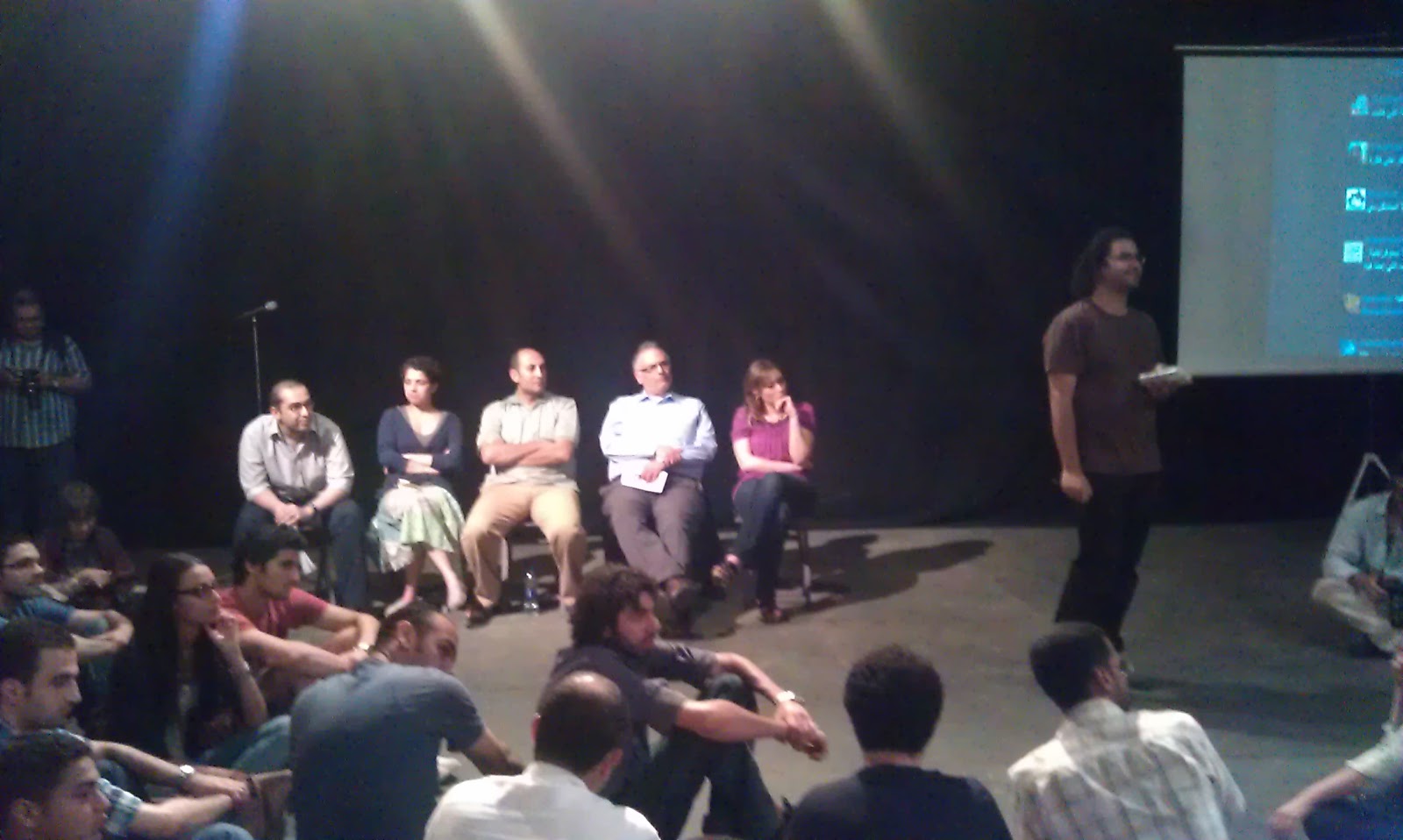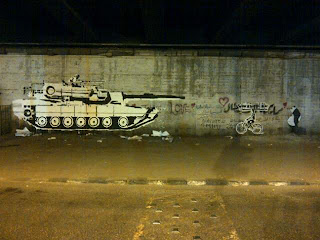During the last two days, I have had the opportunity to examine two groups that are concerned with building a consensus among the revolutionaries and spreading political awareness in all sectors of society. Both groups are working towards achieving the goals of the revolution which I understand to be something that is even greater and nobler than can be expressed in any set of demands. I will try here to shed some light on both groups and contrast their working styles.
The revolution youth union (اتحاد شباب الثورة)
In a meeting with
Abdoulah Helmy, one of the founders, I learned that the
union was formed after realizing that the
coalition was a somewhat closed club that brings together a number of already well organized and well established political groups. Helmy, saw that there are many political groups outside of the coalition and a great deal of politically non-affiliated citizens that need to coordinate activities and work together towards a common goal. He started the
union in Tahrir and got many thousands to signup to it. The
union is amongst the groups that are frequently consulted by the supreme council of the armed forces (SCAF).
The union is a very open group and many of its members maintain other affiliations. They have a head start in trying to work towards and national dialog and to build consensus among members from a very broad ideological spectrum. Amongst their ranks are Salafis, Communists, Coptic extremest and everything in between. I was shown a draft of a set of political demands that they managed to get representatives from diverse groups to agree upon.
They want to act as a lobbying group that will throw its weight behind parliamentary or presidential candidates that adopt their demands. They build their power on an existing (and growing) network of members and affiliated groups. Their approach seems to be one that is focused on consensus building and quickly adapting to circumstances and the composition of their constituents.
The national front for justice and democracy (الجبهة القومية للعدالة و الديمقراطية)
The front seems to have started a bit later in the game, as their membership drive only started in full earnestness in last few weeks. Like the union they are an open group that seeks to build unity and a broad consensus. However, they are more focused on the majority the participants in the revolution who are not affiliated with any political group. One can clearly sense that the founders are justifiably concerned that existing political groups might try maximize their political gains while abandoning what they see as the core goals and aspirations of the revolution.
The front’s goals are:
- Establishing and protecting democracy
- Fighting corruption an demolishing its infrastructure
- Realizing Social Justice
- Influencing domestic policies and actively engaging in national dialog
- Working towards an independent foreign policy that truly represents the interests of the nation
- Acting as lobby to influence the outcome of elections
- Working towards national stability and security
Going forward
The existence of both the front and the union highlights that there is still something in the
Egyptian Revolution that has yet to find a means of expression, something that needs to be established that none on the existing ideological factions can
fully cater for.
The front’s emphasis on the political non-affiliated and “goals and principles” first approach to building unity is admirable. Equally admirable is that they seem to be more methodological in their outlook and purpose.
The union’s heroic efforts in getting ideologically opposing groups to agree on a set of concrete demands is pragmatic coup de grace against the division. The get things done by muddling through thorny issues and difficult events and one gets the impression that they are highly adaptable and initiative driven.
I hope that both the front and union would find areas where they could work together for greater effectiveness. Lets see if we can do battle with the counter revolution with a
pincer maneuver.






